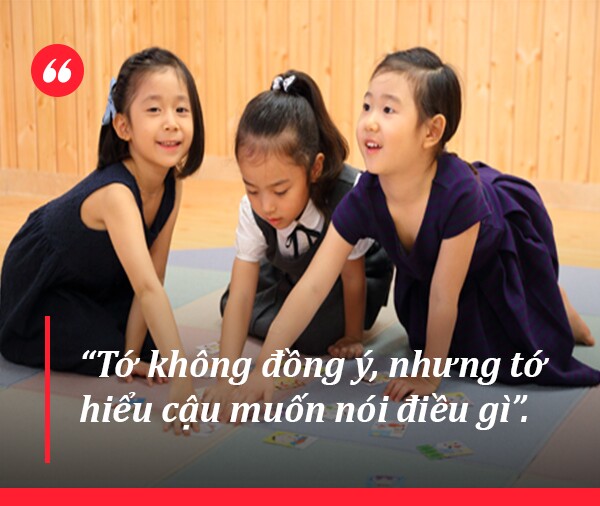Children with high EQ tend to be articulate and are particularly attentive to others’ emotions. They also don’t seek attention and rarely get upset over trivial matters. This is a sign of emotional stability and high EQ.
The communication style of high-EQ children is also distinct, and these four phrases are commonly used, making it easier for them to connect and communicate with others. If your child frequently uses these phrases, you should be proud.


“It’s okay, let’s wait a bit until he remembers.”
A boy was standing in line to buy fruit juice but forgot his mother’s instructions on which juice to get, so he hesitated in front of the counter for a long time. Older children behind him started to get impatient and pushed forward, muttering, “Hurry up, hurry up, why are you so slow!”
At that moment, a little girl next to him said, “It’s okay, let’s wait a bit until he remembers.”
Nowadays, many children want to put themselves first and would feel annoyed if they had to wait. However, the little girl in this story showed great empathy and chose to be kind and tolerant.

This waiting attitude is a combination of self-control and empathy. She understood that everyone has difficult moments and that patience is sometimes necessary. “I might get impatient, but I’m also willing to give others space.” This is a valuable lesson not just for children but also for adults, teaching us to put ourselves in others’ shoes.
If your child voluntarily chooses to wait in line for toys, food, etc., and doesn’t feel “cheated,” it shows that they are good listeners and respectful of others.
With this attitude, your child will become a likable and trustworthy friend, always willing to share and support those around them. These qualities will help them build positive relationships in the future.

“Are you okay? Do you need help?”
Many people think that high EQ means saying sweet words, but in reality, a child with a comfortable mindset doesn’t need to say much to make others feel their sincere concern.
A good example is a girl named A Linh. She is very considerate of her friends when playing together. Once, while the children were playing happily, a boy named Tiểu Hiên fell behind and tripped.
The other children saw but kept running, not even stopping to ask if he was okay. Meanwhile, A Linh stopped, sat down, and asked, “Are you okay? Do you need help?”

This caring gesture energized Tiểu Hiên, who wiped his tears and felt better. A Linh’s kindness created a warm and friendly atmosphere.
Being loved by friends and recognized by others is invaluable in a child’s life. Children with high EQ tend to have rich social relationships and easily communicate and cooperate with others. Most of them are potential leaders because they know how to listen and understand people.

“I don’t agree, but I understand what you mean”
Children often argue over small matters. However, some children know how to defuse the situation and calm the atmosphere, making others willing to listen.
“I don’t agree, but I understand what you mean” means the child acknowledges the other person while also expressing their opinion, which requires strong confidence to resolve conflicts without hurting each other’s feelings. Children who communicate this way have likely learned to manage their emotions and use language effectively.
To develop these skills, parents should educate their children about equality and listen to them seriously. Also, refrain from interrupting or criticizing arbitrarily, allowing children to express their emotions freely. A supportive and understanding family environment will help children feel safer when expressing their thoughts and personal views.


“I don’t know, can you teach me?”
In reality, when faced with something they don’t know how to do, many children refuse to participate or suppress their anger. This can lead to feelings of loneliness and a lack of confidence. Not admitting their weaknesses makes it difficult for children to develop in various areas.
However, children who dare to say, “Teach me,” tend to be open-minded, make more friends, and continue to progress. They are not weak but brave enough to admit their weaknesses and ask for help.

Children who are open to learning and accepting help will find it easier to work in groups and communicate and cooperate with others.
Most children with high EQ are not born with it but develop it through family and daily life. Therefore, parents should focus on nurturing these skills by creating a supportive environment where children feel safe expressing their emotions. This way, they will learn to manage their emotions and interact with others more effectively.







































